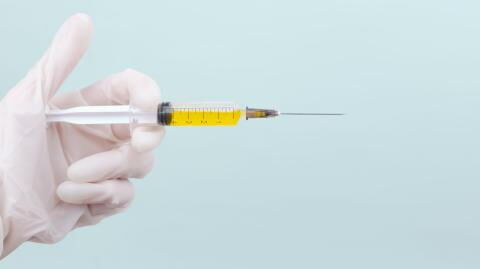The booster programme has been ramping up in the UK, with over8 million inoculatedso far. Much like the first two doses of the vaccine, the booster jab also comes with an array of side effects that the inoculated could possibly experience.
Discover our latest podcast
The reactions to the mRNA vaccine include headaches, pain or swelling at the injection site, fatigue, fever, and muscle pain. However another side effect, which is seldom known, has just been added to the list.
Possible booster side effect
The American Medical Association (AMA) started a series that summarises all the things doctors wish their patients knew about COVID. Their latest article featured advice from AMA member and program director at the Forrest General Hospital Family Medicine Residency Program, Dr. Rambod A. Rouhbakhsh.
While speaking about the possible symptoms that could develop after inoculation, he said that the side effects in all three doses will likely be the same. He did, however, add one reaction that is not widely talked about—arthralgia.
What is arthralgia?
As described by Johns Hopkins Medicine, arthralgia is basically joint stiffness. It can be caused by a variety of different conditions ranging from overuse, to a sprain, gout, injury, and infectious diseases.
Arthralgia is different from arthritis because there is joint pain without any inflammation in the area. Experts at Health Line mention that there are only four main symptoms of arthralgia, ‘stiffness, joint pain, redness, reduced ability to move your joints.’ Whereas people with arthritis may suffer from inflammation, joint deformation, loss of bone and cartilage, and also severe pain due to ‘bones scraping against each other.’















